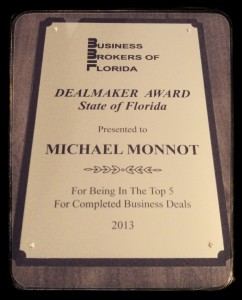When you are looking at buying a business, there are a lot of questions you will want answered.
How much does the business make?
What kind of numbers were on the last three years of tax returns?
How many employees are there?
How much are the monthly lease payments?
While the answers to these questions will be pivotal in helping you determine if a business fits with the goals you are trying to achieve, the more important questions will be the ones that go beneath the surface and delve into the motivations of the seller. The motivations of the person who has owned and operated this business (and now wishes to sell and move on) will speak volumes about the business and about the scenario you are about to put yourself in. This is part 1 of a two-part series addressing the motivational questions you should be asking sellers.
Question 1: Why are they selling?
There are two major reasons that someone sells a business.They want to move on, or they are abandoning a sinking ship. Sellers who wish to move on might be entering retirement or they may have their sights set on a different business venture. You might need to pay a premium price for a business where a seller is just looking to move on, but this motivation to sell has nothing to do with the business itself – it has more to do with the personal life of the seller.
If you come across a business seller who is trying to get off of a sinking ship, don’t walk away just yet. Dig deeper to find out what the problems really are. If they are fixable, the current financial state of the business may mean you will be able to get a great price, but there will be an immediate need to implement changes that will turn the business around.
Question 2: Will they agree to a non-compete clause?
While this isn’t a common issue, as almost all purchase contracts contain a non-compete clause, you should be wary of a seller who refuses to offer a non-compete clause as part of the deal. Some sellers like their concept, but have decided to move the business to a different location. They try to sell the business, then open essentially the same business in a more desirable place. You don’t want to end up with a business in the wrong location or a business whose regular clientele will immediately follow the old owner to the new location. A non-compete clause is the best way a buyer can protect themselves from these issues.
Question 3: Where did the listing price come from?
This may seem like a straightforward question, but the answer will help you differentiate between a motivated seller and a seller who has no intention of selling. No intention of selling? Yes, it does occasionally happen that a seller gets pressure from family or elsewhere to put the business on the market – but they are so emotionally attached to the business that no amount of money will be enough to get the deal done. Asking a seller how they came up with the listing price will speak volumes about how realistic this seller will be throughout the process.
Are you a business buyer who wants to know what kinds of questions to ask sellers? Do you have additional questions about what kinds of answers you should be looking for? Ask us! Please feel free to leave us a comment or question here, and we would be happy to assist you with your business buying questions.
Want to read Part 2? Click here.
Michael Monnot
941.518.7138
Mike@infinitybusinessbrokers.com
1910 Park Meadows Drive, Suite 202
Fort Myers, FL 33907


